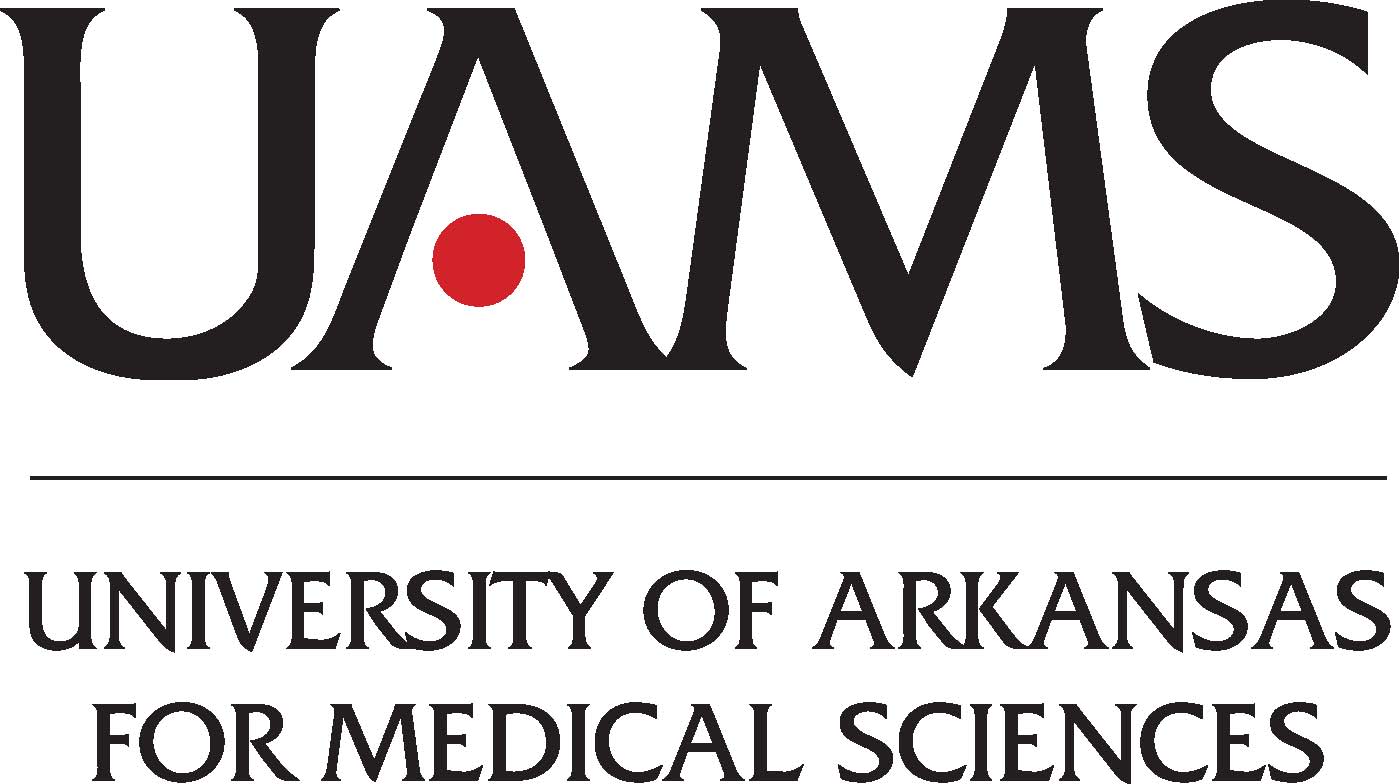Chemotherapy With or Without Trastuzumab After Surgery in Treating Women With Invasive Breast Cancer
| Status: | Active, not recruiting |
|---|---|
| Conditions: | Breast Cancer, Cancer |
| Therapuetic Areas: | Oncology |
| Healthy: | No |
| Age Range: | 18 - Any |
| Updated: | 4/3/2019 |
| Start Date: | January 6, 2011 |
A Randomized Phase III Trial of Adjuvant Therapy Comparing Chemotherapy Alone (Six Cycles of Docetaxel Plus Cyclophosphamide or Four Cycles of Doxorubicin Plus Cyclophosphamide Followed by Weekly Paclitaxel) to Chemotherapy Plus Trastuzumab in Women With Node-Positive or High-Risk Node-Negative HER2-Low Invasive Breast Cancer
This randomized phase III clinical trial studies chemotherapy with or without trastuzumab
after surgery to see how well they work in treating women with invasive breast cancer. Drugs
used in chemotherapy work in different ways to stop the growth of tumor cells, either by
killing the cells, by stopping them from dividing, or by stopping them from spreading. Giving
more than one drug (combination chemotherapy) and giving chemotherapy after surgery may kill
more tumor cells. Monoclonal antibodies, such as trastuzumab, can block cancer growth in
different ways. Some block the ability of tumor cells to grow and spread. Others find tumor
cells and help kill them or carry tumor-killing substances to them. It is not yet known
whether combination chemotherapy is more effective with trastuzumab in treating breast
cancer.
after surgery to see how well they work in treating women with invasive breast cancer. Drugs
used in chemotherapy work in different ways to stop the growth of tumor cells, either by
killing the cells, by stopping them from dividing, or by stopping them from spreading. Giving
more than one drug (combination chemotherapy) and giving chemotherapy after surgery may kill
more tumor cells. Monoclonal antibodies, such as trastuzumab, can block cancer growth in
different ways. Some block the ability of tumor cells to grow and spread. Others find tumor
cells and help kill them or carry tumor-killing substances to them. It is not yet known
whether combination chemotherapy is more effective with trastuzumab in treating breast
cancer.
PRIMARY OBJECTIVES:
I. To determine whether the addition of trastuzumab to chemotherapy (TC or AC→WP) improves
invasive disease-free survival (IDFS) in women with resected node-positive or high-risk
node-negative breast cancer which is reported as human epidermal growth factor receptor
(HER)2-low by all HER2 testing performed.
SECONDARY OBJECTIVES:
I. To determine whether the addition of trastuzumab to chemotherapy (TC or AC→WP) improves
disease-free survival (DFS)-ductal carcinoma in situ (DCIS) in women with resected
node-positive or high-risk node-negative breast cancer which is reported as HER2-low by all
HER2 testing performed.
II. To determine whether the addition of trastuzumab to chemotherapy (TC or AC→WP) improves
breast cancer-free survival (BCFS) in women with resected node-positive or high-risk
node-negative breast cancer which is reported as HER2-low by all HER2 testing performed.
III. To determine whether the addition of trastuzumab to chemotherapy (TC or AC→WP) improves
recurrence-free interval (RFI) in women with resected node-positive or high-risk
node-negative breast cancer which is reported as HER2-low by all HER2 testing performed.
IV. To determine whether the addition of trastuzumab to chemotherapy (TC or AC→WP) improves
distant recurrence-free interval (DRFI) in women with resected node-positive or high-risk
node-negative breast cancer which is reported as HER2-low by all HER2 testing performed.
V. To determine whether the addition of trastuzumab to chemotherapy (TC or AC→WP) improves
overall survival (OS) in women with resected node-positive or high-risk node-negative breast
cancer which is reported as HER2-low by all HER2 testing performed.
VI. To evaluate the associations between amenorrhea and circulating reproductive hormone
levels, and the associations between chemotherapy regimen, amenorrhea, and IDFS benefit in
premenopausal women eligible at baseline for the menstrual history assessments.
VII. To evaluate the toxicity associated with each of the regimens. VIII. To test the
hypothesis that the HER2 messenger ribonucleic acid (mRNA) level is the predictor of the
degree of benefit from trastuzumab and the threshold for benefit in the adjuvant setting is
lower than defined by current American Society of Clinical Oncology (ASCO)/College of
American Pathologists (CAP) Guidelines for HER2 assays (immunohistochemistry [IHC] and
fluorescent in situ hybridization [FISH]).
IX. To identify and/or validate molecular predictors of the degree of benefit from the
addition of trastuzumab to chemotherapy (TC or AC→WP).
X. To test the alternative hypothesis that the main determinant of trastuzumab response in
the adjuvant setting of HER2-low breast cancer is through antibody-dependent cellular
cytotoxicity (ADCC) by demonstrating that the polymorphism of the Fcgamma receptor gene is
predictive of the degree of benefit from the addition of trastuzumab to chemotherapy (TC or
AC→WP).
XI. To examine the relationship between behavioral host factors (obesity, tobacco, alcohol)
and comorbid conditions that may influence systemic inflammation and breast cancer outcomes,
controlling for tumor/stage characteristics and treatment assignment.
XII. To examine the relationship between medication exposures that may influence systemic
inflammation and breast cancer outcomes, controlling for tumor/stage characteristics and
treatment assignment.
XIII. To examine the relationship between comorbid conditions, medication exposures, and
behavioral host factors together and breast cancer outcomes, controlling for tumor/stage
characteristics and treatment assignment.
OUTLINE: Patients are randomized to 1 of 2 treatment arms.
NOTE: *Chemotherapy regimen is based on the investigator's preference.
ARM I:
GROUP A: Patients receive docetaxel intravenously (IV) over 60 minutes and cyclophosphamide
IV over 30 minutes on day 1. Treatment repeats every 3 weeks for 6 courses.
GROUP B: Patients receive doxorubicin hydrochloride IV over 15 minutes and cyclophosphamide
IV over 30 minutes on day 1.
Treatment repeats every 2 or 3 weeks (at the investigator's discretion) for 4 courses.
Patients then receive paclitaxel IV over 60 minutes once weekly for 12 doses.
ARM II:
GROUP A: Patients receive chemotherapy as in Arm IA. Patients also receive trastuzumab IV
over 30-90 minutes on day 1. Trastuzumab treatment repeats every 3 weeks for 51 weeks.
GROUP B: Patients receive chemotherapy as in Arm IB. Patients also receive paclitaxel IV over
60 minutes weekly and trastuzumab IV over 30-90 minutes weekly for 12 doses. After completion
of paclitaxel, patients receive trastuzumab IV over 30-90 minutes on day 1. Treatment repeats
every 3 weeks for 13 courses.
After completion of study treatment, patients are followed up every 6 months for 5 years and
then every 12 months for 5 years.
I. To determine whether the addition of trastuzumab to chemotherapy (TC or AC→WP) improves
invasive disease-free survival (IDFS) in women with resected node-positive or high-risk
node-negative breast cancer which is reported as human epidermal growth factor receptor
(HER)2-low by all HER2 testing performed.
SECONDARY OBJECTIVES:
I. To determine whether the addition of trastuzumab to chemotherapy (TC or AC→WP) improves
disease-free survival (DFS)-ductal carcinoma in situ (DCIS) in women with resected
node-positive or high-risk node-negative breast cancer which is reported as HER2-low by all
HER2 testing performed.
II. To determine whether the addition of trastuzumab to chemotherapy (TC or AC→WP) improves
breast cancer-free survival (BCFS) in women with resected node-positive or high-risk
node-negative breast cancer which is reported as HER2-low by all HER2 testing performed.
III. To determine whether the addition of trastuzumab to chemotherapy (TC or AC→WP) improves
recurrence-free interval (RFI) in women with resected node-positive or high-risk
node-negative breast cancer which is reported as HER2-low by all HER2 testing performed.
IV. To determine whether the addition of trastuzumab to chemotherapy (TC or AC→WP) improves
distant recurrence-free interval (DRFI) in women with resected node-positive or high-risk
node-negative breast cancer which is reported as HER2-low by all HER2 testing performed.
V. To determine whether the addition of trastuzumab to chemotherapy (TC or AC→WP) improves
overall survival (OS) in women with resected node-positive or high-risk node-negative breast
cancer which is reported as HER2-low by all HER2 testing performed.
VI. To evaluate the associations between amenorrhea and circulating reproductive hormone
levels, and the associations between chemotherapy regimen, amenorrhea, and IDFS benefit in
premenopausal women eligible at baseline for the menstrual history assessments.
VII. To evaluate the toxicity associated with each of the regimens. VIII. To test the
hypothesis that the HER2 messenger ribonucleic acid (mRNA) level is the predictor of the
degree of benefit from trastuzumab and the threshold for benefit in the adjuvant setting is
lower than defined by current American Society of Clinical Oncology (ASCO)/College of
American Pathologists (CAP) Guidelines for HER2 assays (immunohistochemistry [IHC] and
fluorescent in situ hybridization [FISH]).
IX. To identify and/or validate molecular predictors of the degree of benefit from the
addition of trastuzumab to chemotherapy (TC or AC→WP).
X. To test the alternative hypothesis that the main determinant of trastuzumab response in
the adjuvant setting of HER2-low breast cancer is through antibody-dependent cellular
cytotoxicity (ADCC) by demonstrating that the polymorphism of the Fcgamma receptor gene is
predictive of the degree of benefit from the addition of trastuzumab to chemotherapy (TC or
AC→WP).
XI. To examine the relationship between behavioral host factors (obesity, tobacco, alcohol)
and comorbid conditions that may influence systemic inflammation and breast cancer outcomes,
controlling for tumor/stage characteristics and treatment assignment.
XII. To examine the relationship between medication exposures that may influence systemic
inflammation and breast cancer outcomes, controlling for tumor/stage characteristics and
treatment assignment.
XIII. To examine the relationship between comorbid conditions, medication exposures, and
behavioral host factors together and breast cancer outcomes, controlling for tumor/stage
characteristics and treatment assignment.
OUTLINE: Patients are randomized to 1 of 2 treatment arms.
NOTE: *Chemotherapy regimen is based on the investigator's preference.
ARM I:
GROUP A: Patients receive docetaxel intravenously (IV) over 60 minutes and cyclophosphamide
IV over 30 minutes on day 1. Treatment repeats every 3 weeks for 6 courses.
GROUP B: Patients receive doxorubicin hydrochloride IV over 15 minutes and cyclophosphamide
IV over 30 minutes on day 1.
Treatment repeats every 2 or 3 weeks (at the investigator's discretion) for 4 courses.
Patients then receive paclitaxel IV over 60 minutes once weekly for 12 doses.
ARM II:
GROUP A: Patients receive chemotherapy as in Arm IA. Patients also receive trastuzumab IV
over 30-90 minutes on day 1. Trastuzumab treatment repeats every 3 weeks for 51 weeks.
GROUP B: Patients receive chemotherapy as in Arm IB. Patients also receive paclitaxel IV over
60 minutes weekly and trastuzumab IV over 30-90 minutes weekly for 12 doses. After completion
of paclitaxel, patients receive trastuzumab IV over 30-90 minutes on day 1. Treatment repeats
every 3 weeks for 13 courses.
After completion of study treatment, patients are followed up every 6 months for 5 years and
then every 12 months for 5 years.
Inclusion Criteria:
- Patients should have a life expectancy of at least 10 years, excluding their diagnosis
of breast cancer; (comorbid conditions should be taken into consideration, but not the
diagnosis of breast cancer)
- Women of reproductive potential must agree to use an effective non-hormonal method of
contraception (for example condoms, some intrauterine devices, diaphragms, tubal
ligation, vasectomized partner, or abstinence) during therapy and for at least 6
months (Arm 1 patients) and for at least 7 months (Arm 2 patients) after the last dose
of study therapy (chemotherapy or trastuzumab)
- Submission of tumor samples from the breast surgery is required for all patients;
therefore, the local pathology department policy regarding release of tumor samples
must be considered in the screening process; patients whose tumor samples are located
in a pathology department that by policy will not submit any samples for research
purposes should not be approached for participation in the B-47 trial
- The patient must have signed and dated an Institutional Review Board (IRB)-approved
consent form that conforms to federal and institutional guidelines
- Eastern Cooperation Oncology Group (ECOG) performance status of 0 or 1
- The tumor must be unilateral invasive adenocarcinoma of the breast on histologic
examination
- All of the following staging criteria (according to the 7th edition of the American
Joint Committee on Cancer [AJCC] Cancer Staging Manual) must be met:
- By pathologic evaluation, primary tumor must be pT1-3
- By pathologic evaluation, ipsilateral nodes must be pN0, pN1 (pN1mi, pN1a, pN1b,
pN1c), pN2a, pN2b, pN3a, or pN3b
- If pN0, one of the following criteria must be met:
- pT2 and estrogen receptor (ER) negative and progesterone receptor (PgR)
negative; or
- pT2 and ER positive (PgR status may be positive or negative) and either
grade 3 histology or Oncotype DX Recurrence Score of >= 25; or
- pT3 regardless of hormone receptor status, histologic grade, and
Oncotype DX Recurrence Score
- HER2 status of the primary tumor must be evaluated prior to randomization; all testing
performed must indicate that the tumor is HER2-low as defined below
- IHC must be performed and the IHC staining results must indicate a score of 1+
(in situ hybridization [ISH] testing is not required) or 2+ (ISH must also be
performed and must indicate that the tumor is HER2-low as described below)
- If ISH testing is performed, test results must be as follows and IHC must be 1+
or 2+: the ratio of HER2 to chromosome enumeration probe 17 (CEP17) must be < 2.0
or, if a ratio was not performed, the HER2 gene copy number must be < 4 per
nucleus
- Note: If the IHC staining intensity is reported as a range, e.g., 0 to 1+ or 1+
to 2+, the higher intensity score in the range should be used to determine
eligibility
- The patient must have undergone either a total mastectomy or breast-conserving surgery
(lumpectomy); (patients who have had a nipple-sparing mastectomy are eligible)
- For patients who undergo lumpectomy, the margins of the resected specimen must be
histologically free of invasive tumor and ductal carcinoma in situ (DCIS) as
determined by the local pathologist; if pathologic examination demonstrates tumor at
the line of resection, additional operative procedures may be performed to obtain
clear margins; if tumor is still present at the resected margin after re-excision(s),
the patient must undergo total mastectomy to be eligible; (patients with margins
positive for lobular carcinoma in situ [LCIS] are eligible without additional
resection)
- For patients who undergo mastectomy, margins must be free of gross residual tumor;
(patients with microscopic positive margins are eligible as long as post-mastectomy
radiation therapy [RT] of the chest wall will be administered)
- The patient must have completed one of the procedures for evaluation of pathologic
nodal status listed below:
- Sentinel lymphadenectomy alone:
- If pathologic nodal staging based on sentinel lymphadenectomy is pN0 or pN1b
- If pathologic nodal staging based on sentinel lymphadenectomy is pN1mi or
pN1a, the primary tumor must be T1 or T2 by pathologic evaluation and the
nodal involvement must be limited to 1 or 2 positive nodes
- Sentinel lymphadenectomy followed by removal of additional non-sentinel lymph
nodes if the sentinel node (SN) is positive; or
- Axillary lymphadenectomy with or without SN isolation procedures
- The interval between the last surgery for breast cancer (treatment or staging) and
randomization must be no more than 84 days
- The patient must have ER analysis performed on the primary tumor prior to
randomization; if ER analysis is negative, then PgR analysis must also be performed
(either the core biopsy or surgical resection specimen can be used for ER/PgR
testing); patients with a primary tumor that is hormone receptor-positive or
receptor-negative are eligible
- Absolute neutrophil count (ANC) must be >= 1,200/mm^3
- Platelet count must be >= 100,000/mm^3
- Hemoglobin must be >= 10 g/dL
- Total bilirubin must be =< upper limit of normal (ULN) for the lab unless the patient
has a bilirubin elevation > ULN to 1.5 x ULN due to Gilbert disease or similar
syndrome involving slow conjugation of bilirubin
- Alkaline phosphatase must be =< 2.5 x ULN for the lab
- Aspartate aminotransferase (AST) must be =< 1.5 x ULN for the lab (if alanine
aminotransferase [ALT] is performed instead of AST [per institution's standard
practice], the alanine aminotransferase [ALT] value must be =< 1.5 x ULN; if both were
performed, the AST must be =< 1.5 x ULN)
- Alkaline phosphatase and AST may not both be > the ULN
- Patients with AST or alkaline phosphatase > ULN are eligible for inclusion in the
study if liver imaging (computed tomography [CT], magnetic resonance imaging [MRI],
positron emission tomography [PET]-CT, or PET scan) performed within 90 days prior to
randomization does not demonstrate metastatic disease and the above requirements are
met
- Patients with alkaline phosphatase that is > ULN but =< 2.5 x ULN or unexplained bone
pain are eligible for inclusion in the study if a bone scan, PET-CT scan, or PET scan
performed within 90 days prior to randomization does not demonstrate metastatic
disease
- The most recent postoperative serum creatinine performed within 6 weeks prior to
randomization must be =< ULN for the lab
- Left ventricular ejection fraction (LVEF) assessment must be performed within 90 days
prior to randomization; LVEF assessment performed by 2-dimensional (D) echocardiogram
is preferred, however, multi-gated acquisition (MUGA) scan maybe substituted based on
institutional preferences
- For patients who will receive the TC chemotherapy regimen, the LVEF must be >=
50% regardless of the cardiac imaging facility's lower limit of normal
- For patients who will receive the AC-->WP chemotherapy regimen, the LVEF must be
>= 55% regardless of the cardiac imaging facility's lower limit of normal
- NOTE: Since the pre-entry LVEF serves as the baseline for comparing subsequent
LVEF assessments, it is critical that this baseline study be an accurate
assessment; if the baseline LVEF is > 70%, the investigator is encouraged to have
the accuracy of the initial LVEF result confirmed and repeat the test if the
accuracy is uncertain
Exclusion Criteria:
- Primary tumor with any of the following HER2 testing results:
- IHC staining intensity:
- 0 on all evaluations of specimens
- 3+ on evaluation of any specimen
- ISH with a ratio of HER2 to CEP17 >= 2.0 on evaluation of any specimen
- ISH result indicating HER2 gene copy number >= 4 per nucleus on evaluation of any
specimen
- T4 tumors including inflammatory breast cancer
- Definitive clinical or radiologic evidence of metastatic disease
- NOTE: Chest imaging (mandatory for all patients) and other imaging (if required)
must have been performed within 90 days prior to randomization
- Synchronous or previous contralateral invasive breast cancer (patients with
synchronous and/or previous contralateral DCIS or LCIS are eligible)
- Any previous history of ipsilateral invasive breast cancer or ipsilateral DCIS;
(patients with synchronous or previous ipsilateral LCIS are eligible)
- History of non-breast malignancies (except for in situ cancers treated only by local
excision and basal cell and squamous cell carcinomas of the skin) within 5 years prior
to randomization
- Previous therapy with anthracyclines, taxanes, or trastuzumab for any malignancy
- Chemotherapy or HER2-targeted therapy administered for the currently diagnosed breast
cancer prior to randomization
- Whole-breast RT prior to randomization or partial-breast RT that cannot be completed
on or before the date of randomization
- Continued endocrine therapy such as raloxifene or tamoxifen (or other selective
estrogen receptor modulator [SERM]) or an aromatase inhibitor; patients are eligible
if these medications are discontinued prior to randomization
- Any continued use of sex hormonal therapy, e.g., birth control pills, ovarian hormone
replacement therapy; patients are eligible if these medications are discontinued prior
to randomization
- Cardiac disease (history of and/or active disease) that would preclude the use of the
drugs included in the treatment regimens; this includes but is not confined to:
- Active cardiac disease:
- Angina pectoris that requires the current use of anti-anginal medication
- Ventricular arrhythmias except for benign premature ventricular contractions
- Supraventricular and nodal arrhythmias requiring a pacemaker or not
controlled with medication
- Conduction abnormality requiring a pacemaker
- Valvular disease with documented compromise in cardiac function
- Symptomatic pericarditis
- History of cardiac disease:
- Myocardial infarction documented by elevated cardiac enzymes or persistent
regional wall abnormalities on assessment of left ventricle (LV) function
- History of documented congestive heart failure (CHF)
- Documented cardiomyopathy
- Hypertension defined according to the following ineligibility criteria:
- For patients who will receive TC (regardless of the patient's age): uncontrolled
hypertension defined as sustained systolic blood pressure (BP) > 150 mm Hg or
diastolic BP > 90 mm Hg; (patients with initial BP elevations are eligible if
initiation or adjustment of BP medication lowers pressure to meet entry criteria)
- For patients < 50 years old who will receive AC-->WP: uncontrolled hypertension
defined as sustained systolic BP > 150 mm Hg or diastolic BP > 90 mm Hg; patients
with initial BP elevations are eligible if initiation or adjustment of BP
medication lowers pressure to meet entry criteria
- For patients >= 50 years old who will receive AC-->WP:
- Uncontrolled hypertension defined as sustained systolic BP > 150 mm Hg or
diastolic BP > 90 mm Hg
- Controlled hypertension (systolic BP =< 150 mm Hg and diastolic BP =< 90
mmHg), if anti-hypertensive medication(s) are needed
- NOTE: Patients who are not eligible based on the AC-WP regimen BP criteria but
who meet the TC regimen BP criteria are eligible for B-47, if the intended
chemotherapy regimen is changed to TC
- Active hepatitis B or hepatitis C with abnormal liver function tests
- Intrinsic lung disease resulting in dyspnea
- Poorly controlled diabetes mellitus
- Active infection or chronic infection requiring chronic suppressive antibiotics
- Nervous system disorder (paresthesia, peripheral motor neuropathy, or peripheral
sensory neuropathy) >= grade 2, per the Common Terminology Criteria for Adverse Events
(CTCAE) version (v)4.0
- Conditions that would prohibit administration of corticosteroids
- Chronic daily treatment with corticosteroids with a dose of >= 10 mg/day
methylprednisol one equivalent (excluding inhaled steroids)
- Known hypersensitivity to any of the study drugs or excipients, e.g., polysorbate 80
and Cremophor EL
- Pregnancy or lactation at the time of study entry; (Note: pregnancy testing must be
performed within 2 weeks prior to randomization according to institutional standards
for women of childbearing potential)
- Other non-malignant systemic disease that would preclude the patient from receiving
study treatment or would prevent required follow-up
- Psychiatric or addictive disorders or other conditions that, in the opinion of the
investigator, would preclude the patient from meeting the study requirements
- Use of any investigational product within 30 days prior to randomization
We found this trial at
1275
sites
18101 Lorain Avenue
Cleveland, Ohio 44111
Cleveland, Ohio 44111
216.476.7000

Cleveland Clinic Cancer Center at Fairview Hospital Fairview Hospital is a 488-bed hospital located at...
Click here to add this to my saved trials
1201 Camino de Salud Northeast
Albuquerque, New Mexico 87131
Albuquerque, New Mexico 87131
(505) 272-4946

University of New Mexico Cancer Center It’s been 40 years since the New Mexico State...
Click here to add this to my saved trials
Harold Alfond Center for Cancer Care MaineGeneral's Harold Alfond Center for Cancer Care (HACCC) is...
Click here to add this to my saved trials
Suburban Hospital Suburban Hospital is a community-based, not-for-profit hospital serving Montgomery County and the surrounding...
Click here to add this to my saved trials
2545 Schoenersville Rd
Bethlehem, Pennsylvania 18017
Bethlehem, Pennsylvania 18017
(484) 884-2200

Lehigh Valley Hospital - Muhlenberg At Lehigh Valley Health Network, we continually go the extra...
Click here to add this to my saved trials
Tufts Medical Center Tufts Medical Center is an internationally-respected academic medical center – a teaching...
Click here to add this to my saved trials
Roswell Park Cancer Institute Welcome to Roswell Park Cancer Institute (RPCI), America's first cancer center...
Click here to add this to my saved trials
1 South Prospect Street
Burlington, Vermont 05401
Burlington, Vermont 05401
802-656-8990
Click here to add this to my saved trials
Hurley Medical Center From its founding in 1908, Hurley Medical Center has devoted itself to...
Click here to add this to my saved trials
Holy Cross Hospital While spirituality plays an essential role in the way that we minister...
Click here to add this to my saved trials
University of Texas Medical Branch Established in 1891 as the University of Texas Medical Department,...
Click here to add this to my saved trials
University of Mississippi Medical Center The University of Mississippi Medical Center, located in Jackson, is...
Click here to add this to my saved trials
Click here to add this to my saved trials
Bronson Methodist Hospital Our healthcare system serves patients and families throughout southwest Michigan and northern...
Click here to add this to my saved trials
West Michigan Cancer Center In 1994, Borgess Health Alliance and Bronson Healthcare Group opened the...
Click here to add this to my saved trials
1800 West Charleston Boulevard
Las Vegas, Nevada 89102
Las Vegas, Nevada 89102
(702) 383-2000

University Medical Center of Southern Nevada University Medical Center is dedicated to providing the highest...
Click here to add this to my saved trials
529 West Markham Street
Little Rock, Arkansas 72205
Little Rock, Arkansas 72205
(501) 686-7000

University of Arkansas for Medical Sciences The University of Arkansas for Medical Sciences (UAMS) in...
Click here to add this to my saved trials
Medical Center of Central Georgia Navicent Health is a designated Level I Trauma Center and...
Click here to add this to my saved trials
North Shore University Hospital North Shore-LIJ Health System includes 16 award-winning hospitals and nearly 400...
Click here to add this to my saved trials
Click here to add this to my saved trials
4805 Northeast Glisan Street
Portland, Oregon 97213
Portland, Oregon 97213
(503) 215-1111

Providence Portland Medical Center We strive to give those we serve exceptional, compassionate health care...
Click here to add this to my saved trials
Rhode Island Hospital Founded in 1863, Rhode Island Hospital in Providence, RI, is a private,...
Click here to add this to my saved trials
401 College Street
Richmond, Virginia 23298
Richmond, Virginia 23298
(804) 828-0450

Virginia Commonwealth University Massey Cancer Center Founded in 1974, VCU Massey Cancer Center is a...
Click here to add this to my saved trials
University of Rochester The University of Rochester is one of the country's top-tier research universities....
Click here to add this to my saved trials
4502 Medical Drive
San Antonio, Texas 78284
San Antonio, Texas 78284
(210) 567-7000

University of Texas Health Science Center at San Antonio The University of Texas Health Science...
Click here to add this to my saved trials
Click here to add this to my saved trials
1100 Fairview Avenue North
Seattle, Washington 98109
Seattle, Washington 98109
(206) 667-5000

Fred Hutchinson Cancer Research Center At Fred Hutchinson Cancer Research Center, our interdisciplinary teams of...
Click here to add this to my saved trials
Avera Cancer Institute Avera, the health ministry of the Benedictine and Presentation Sisters, is a...
Click here to add this to my saved trials
601 South Sherman Street
Spokane, Washington 99202
Spokane, Washington 99202
(509) 228-1000

Cancer Care Northwest - Spokane South Cancer Care Northwest is the Inland Northwest’s premier cancer...
Click here to add this to my saved trials
Click here to add this to my saved trials
Click here to add this to my saved trials
Click here to add this to my saved trials
Click here to add this to my saved trials
Abington Memorial Hospital Abington Memorial Hospital (AMH) is a 665-bed, regional referral center and teaching...
Click here to add this to my saved trials
Bixby Medical Center ProMedica's Mission is to improve your health and well-being. Which is why,...
Click here to add this to my saved trials
Click here to add this to my saved trials
Click here to add this to my saved trials
Click here to add this to my saved trials
Click here to add this to my saved trials
Click here to add this to my saved trials
Click here to add this to my saved trials
Click here to add this to my saved trials
Click here to add this to my saved trials
Click here to add this to my saved trials
Click here to add this to my saved trials
Click here to add this to my saved trials
Click here to add this to my saved trials
Click here to add this to my saved trials
Click here to add this to my saved trials
Click here to add this to my saved trials
170 North 1100 East
American Fork, Utah 84003
American Fork, Utah 84003
Click here to add this to my saved trials
Click here to add this to my saved trials
Click here to add this to my saved trials
Click here to add this to my saved trials
Click here to add this to my saved trials
Click here to add this to my saved trials
Click here to add this to my saved trials
Click here to add this to my saved trials
Click here to add this to my saved trials
Click here to add this to my saved trials
Click here to add this to my saved trials
Click here to add this to my saved trials
AnMedical Health Cancer Center Cancer is the general term for a group of more than...
Click here to add this to my saved trials
Click here to add this to my saved trials
Saint Joseph Mercy Hospital St. Joseph Mercy Ann Arbor Hospital is a 537-bed teaching hospital...
Click here to add this to my saved trials
1500 East Medical Center Drive
Ann Arbor, Michigan 48109
Ann Arbor, Michigan 48109
800-865-1125

University of Michigan Comprehensive Cancer Center The U-M Comprehensive Cancer Center's mission is the conquest...
Click here to add this to my saved trials
Click here to add this to my saved trials
Click here to add this to my saved trials
Click here to add this to my saved trials
Click here to add this to my saved trials
Click here to add this to my saved trials
Click here to add this to my saved trials
Click here to add this to my saved trials
Randolph Hospital Since 1932, Randolph Hospital has been fortunate to employ dedicated and loyal personnel...
Click here to add this to my saved trials
Click here to add this to my saved trials
Click here to add this to my saved trials
Click here to add this to my saved trials
Click here to add this to my saved trials
Click here to add this to my saved trials
Click here to add this to my saved trials
Click here to add this to my saved trials
Northside Hospital Northside Hospital-Atlanta (in Sandy Springs) opened in 1970. The original facility had 250...
Click here to add this to my saved trials
Piedmont Hospital For more than a century, Piedmont Healthcare has been a recognized leader in...
Click here to add this to my saved trials
Click here to add this to my saved trials
Emory University Hospital Midtown Emory University Hospital Midtown is a 511-bed community-based, acute care teaching...
Click here to add this to my saved trials
Click here to add this to my saved trials
Click here to add this to my saved trials
Click here to add this to my saved trials
Click here to add this to my saved trials
Click here to add this to my saved trials
Click here to add this to my saved trials
Click here to add this to my saved trials
Click here to add this to my saved trials
Medical Center of Aurora At The Medical Center of Aurora and Centennial Medical Plaza patients...
Click here to add this to my saved trials
University of Colorado Hospital, Site Top medical professionals, superior medicine and progressive change make University...
Click here to add this to my saved trials
Rush - Copley Medical Center Rush-Copley is proud to be the leading provider of health...
Click here to add this to my saved trials
Click here to add this to my saved trials
Click here to add this to my saved trials
Click here to add this to my saved trials
Click here to add this to my saved trials
Click here to add this to my saved trials

























